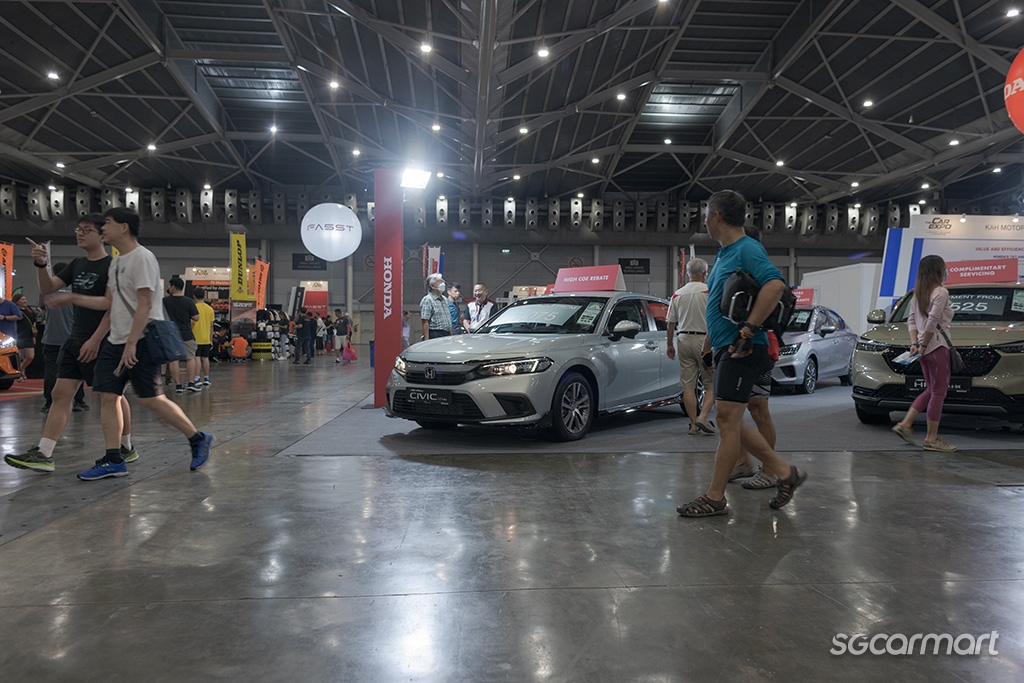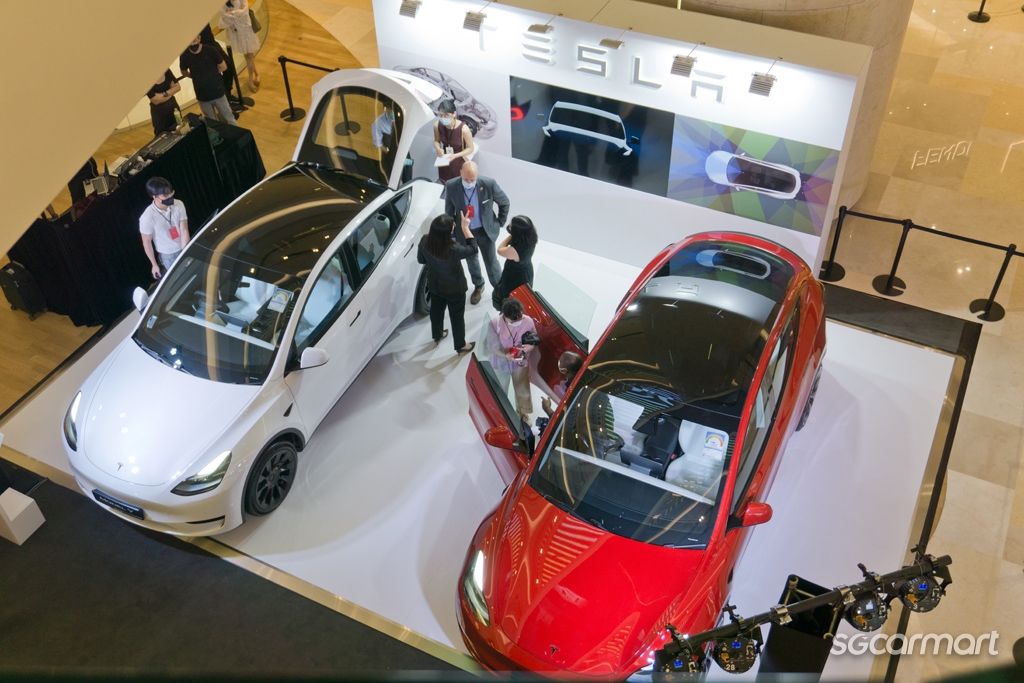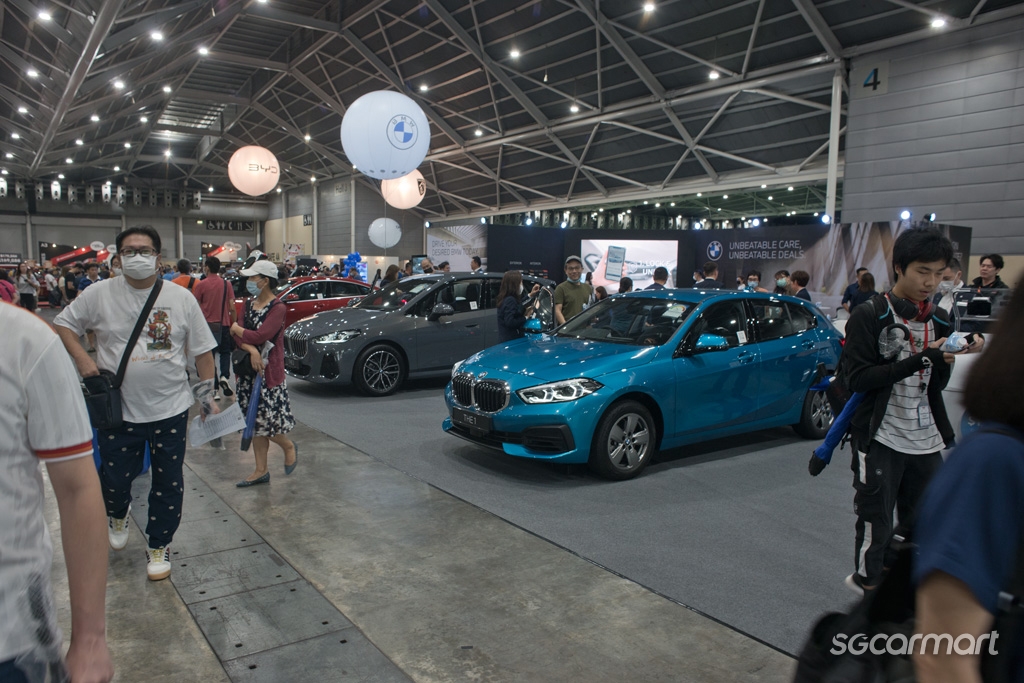How has the GST increase affected car prices?
09 Jan 2024|12,607 views
9% GST is upon us.
You can immediately feel it. Already on 1 Jan some prices at my nearby kopitiam have been increased - food menus have their new prices sticker-ed on. It's not just food, of course. Electronics, furniture, Amazon purchases, even a 20pc McNuggets on McDelivery has gone up 35 cents (according to Wayback Machine).
What then, our cars?
Well, the first COE bidding exercise of 2024 has just concluded, and that means that we can trawl through various price lists to see how car prices have changed in this new year.
Here, we've looked at a wide selection of cars across price points, segments, and COE categories to try to evaluate if cars have also seen a price bump as a result of this new GST increase. Of course, individual distributors will have different pricing strategies (which may or may not be model-specific as well), but by casting a broad look across the market and factoring out COE prices and changes in VES/EEAI rebates, we can hopefully learn something.
| Dec-23 | Jan-24 | |||||||
| Model | Price incl COE | COE | Price excl COE | Price incl COE | COE | VES/EEAI change1 | Price excl COE & rebate change | % change |
| Audi A3 Sedan 1.0 | 250,094 | 85,000 | 165,094 | 200,094 | 65,010 | 0 | 135,084 | -18.2% |
| BMW 1 Series | 195,888 | 85,000 | 110,888 | 194,888 | 65,010 | +15,000 | 114,878 | +3.6% |
| BMW i7 | 704,888 | 110,001 | 594,887 | 694,888 | 85,010 | 0 | 609,878 | +2.5% |
| BYD Atto 3 100kW | 159,888 | 85,000 | 74,888 | 146,888 | 65,010 | +5,000 | 76,878 | +2.7% |
| Ferrari 296 GTB | - | - | 1,411,218 | - | - | - | 1,411,218 | 0% |
| Honda HR-V | 166,999 | 85,000 | 81,999 | 155,999 | 65,010 | 0 | 90,989 | +11% |
| Hyundai Ioniq 5 58kWh | 182,800 | 85,000 | 97,800 | 168,800 | 65,010 | +5,000 | 98,790 | +1% |
| Jaguar F-PACE | 218,888 | 218,888 | 0% | |||||
| Kia Niro Hybrid | 163,999 | 85,000 | 78,999 | 146,999 | 65,010 | +10,000 | 71,989 | -8.9% |
| Kia EV 6 | 275,999 | 110,001 | 165,998 | 250,999 | 85,010 | +5,000 | 160,989 | -3.1% |
| Land Rover Defender 110 | 299,888 | 299,888 | 0% | |||||
| Lexus NX 350h | 351,800 | 110,001 | 241,799 | 323,800 | 85,010 | +15,000 | 223,790 | -7.5% |
| Lexus RZ | 427,800 | 110,001 | 317,799 | 392,800 | 85,010 | +5,000 | 302,790 | -4.8% |
| Mazda 3 Sedan | 172,888 | 85,000 | 87,888 | 152,888 | 65,010 | 0 | 87,878 | 0% |
| Mercedes-Benz C180 | 310,888 | 110,001 | 200,887 | 285,888 | 85,010 | 0 | 200,878 | 0% |
| Mercedes-Benz EQE SUV | 442,888 | 110,001 | 332,887 | 417,888 | 85,010 | +5,000 | 327,878 | -1.5% |
| Nissan Kicks e-POWER | 156,800 | 85,000 | 598,00 | 149,800 | 65,010 | +10,000 | 74790 | +4% |
| Porsche Macan | 268,788 | 268,788 | 0% | |||||
| Tesla Model 3 RWD | 88,650 | +5,000 | 89,890 | +1.4% | ||||
| Toyota Corolla Altis | 163,888 | 85,000 | 78,888 | 147,888 | 65,010 | 0 | 82,878 | +5% |
| Toyota Harrier | 250,888 | 110,001 | 140,887 | 229,888 | 85,010 | +10,000 | 134,878 | -4.3% |
| Volkswagen Golf Life Plus | 179,900 | 85,000 | 94,900 | 169,900 | 65,010 | +15,000 | 89,890 | -5.3% |
All figures based on available price lists on Sgcarmart
1 To be clear, changes in VES and EEAI rebates are a reduction in rebate amount. However, it is here reflected as a + figure to indicate that it is an increase in cost
These calculations are based on the price lists available in accordance to that particular bidding period, which allows us to factor out chances in COE prices. Additionally, with the revision of VES and EEAI rebates, we've also tried to take those numbers into account. Also, for clarity, we have only sampled cars from Authorised Distributors (parallel imports are not taken into account).
The complex nature of car pricing means that its impossible to specifically pin point the effect of the GST increase on prices, though distributors acknowledge that it's taken into account
So, back to the original question: How has the GST increase affected car prices?
The answer? I don't know. Across the board, there are broad swings in terms of car pricing in the new year, even when factoring COE and changes in rebates.
In some instances, the numbers appear to reflect an according adjustment for GST increase, such as the Ioniq 5 and Model 3. In most others, however, there is significant fluctuation. There is no obvious and clearly discernible pattern here - annoying for the purposes of this analysis, but perhaps not particularly surprising.
In speaking to a number of distributors, they too acknowledged that the increase in GST is factored into car pricing. What these numbers indicate, however, is the deeply complex nature of car pricing here in Singapore. Beyond just the numerous factors that affect a car's price, this is also a highly competitive market - distributors have to adjust car prices to reflect changes in cost (such as GST), but also to react to the car buying market as a whole in an attempt to attract more customers. And of course, we also have to acknowledge the reality that these are listed prices - the actual transacted price for each customer will vary as well.
It is certainly hard to draw any obvious conclusions (perhaps other than this has been a waste of my time and brain power). It only further highlights the complicated nature of car ownership from a cost perspective (and we haven't even gone into more numbers like interest, running costs and all the like).
What is clear from these numbers, though, is that accounting for the GST increase is nowhere as simple as simple adding 1% to a car's price, irrespective of COE. Most certainly not as simple as my kopitiam fish soup stall increasing prices by a flat 50 cents across the board.
And of course, with the Singapore Motor Show coming up in a few days that promises buyers all sorts of deals and discounts, all these numbers will certainly all be thrown into disarray once more.
9% GST is upon us.
You can immediately feel it. Already on 1 Jan some prices at my nearby kopitiam have been increased - food menus have their new prices sticker-ed on. It's not just food, of course. Electronics, furniture, Amazon purchases, even a 20pc McNuggets on McDelivery has gone up 35 cents (according to Wayback Machine).
What then, our cars?
Well, the first COE bidding exercise of 2024 has just concluded, and that means that we can trawl through various price lists to see how car prices have changed in this new year.
Here, we've looked at a wide selection of cars across price points, segments, and COE categories to try to evaluate if cars have also seen a price bump as a result of this new GST increase. Of course, individual distributors will have different pricing strategies (which may or may not be model-specific as well), but by casting a broad look across the market and factoring out COE prices and changes in VES/EEAI rebates, we can hopefully learn something.
| Dec-23 | Jan-24 | |||||||
| Model | Price incl COE | COE | Price excl COE | Price incl COE | COE | VES/EEAI change1 | Price excl COE & rebate change | % change |
| Audi A3 Sedan 1.0 | 250,094 | 85,000 | 165,094 | 200,094 | 65,010 | 0 | 135,084 | -18.2% |
| BMW 1 Series | 195,888 | 85,000 | 110,888 | 194,888 | 65,010 | +15,000 | 114,878 | +3.6% |
| BMW i7 | 704,888 | 110,001 | 594,887 | 694,888 | 85,010 | 0 | 609,878 | +2.5% |
| BYD Atto 3 100kW | 159,888 | 85,000 | 74,888 | 146,888 | 65,010 | +5,000 | 76,878 | +2.7% |
| Ferrari 296 GTB | - | - | 1,411,218 | - | - | - | 1,411,218 | 0% |
| Honda HR-V | 166,999 | 85,000 | 81,999 | 155,999 | 65,010 | 0 | 90,989 | +11% |
| Hyundai Ioniq 5 58kWh | 182,800 | 85,000 | 97,800 | 168,800 | 65,010 | +5,000 | 98,790 | +1% |
| Jaguar F-PACE | 218,888 | 218,888 | 0% | |||||
| Kia Niro Hybrid | 163,999 | 85,000 | 78,999 | 146,999 | 65,010 | +10,000 | 71,989 | -8.9% |
| Kia EV 6 | 275,999 | 110,001 | 165,998 | 250,999 | 85,010 | +5,000 | 160,989 | -3.1% |
| Land Rover Defender 110 | 299,888 | 299,888 | 0% | |||||
| Lexus NX 350h | 351,800 | 110,001 | 241,799 | 323,800 | 85,010 | +15,000 | 223,790 | -7.5% |
| Lexus RZ | 427,800 | 110,001 | 317,799 | 392,800 | 85,010 | +5,000 | 302,790 | -4.8% |
| Mazda 3 Sedan | 172,888 | 85,000 | 87,888 | 152,888 | 65,010 | 0 | 87,878 | 0% |
| Mercedes-Benz C180 | 310,888 | 110,001 | 200,887 | 285,888 | 85,010 | 0 | 200,878 | 0% |
| Mercedes-Benz EQE SUV | 442,888 | 110,001 | 332,887 | 417,888 | 85,010 | +5,000 | 327,878 | -1.5% |
| Nissan Kicks e-POWER | 156,800 | 85,000 | 598,00 | 149,800 | 65,010 | +10,000 | 74790 | +4% |
| Porsche Macan | 268,788 | 268,788 | 0% | |||||
| Tesla Model 3 RWD | 88,650 | +5,000 | 89,890 | +1.4% | ||||
| Toyota Corolla Altis | 163,888 | 85,000 | 78,888 | 147,888 | 65,010 | 0 | 82,878 | +5% |
| Toyota Harrier | 250,888 | 110,001 | 140,887 | 229,888 | 85,010 | +10,000 | 134,878 | -4.3% |
| Volkswagen Golf Life Plus | 179,900 | 85,000 | 94,900 | 169,900 | 65,010 | +15,000 | 89,890 | -5.3% |
All figures based on available price lists on Sgcarmart
1 To be clear, changes in VES and EEAI rebates are a reduction in rebate amount. However, it is here reflected as a + figure to indicate that it is an increase in cost
These calculations are based on the price lists available in accordance to that particular bidding period, which allows us to factor out chances in COE prices. Additionally, with the revision of VES and EEAI rebates, we've also tried to take those numbers into account. Also, for clarity, we have only sampled cars from Authorised Distributors (parallel imports are not taken into account).
The complex nature of car pricing means that its impossible to specifically pin point the effect of the GST increase on prices, though distributors acknowledge that it's taken into account
So, back to the original question: How has the GST increase affected car prices?
The answer? I don't know. Across the board, there are broad swings in terms of car pricing in the new year, even when factoring COE and changes in rebates.
In some instances, the numbers appear to reflect an according adjustment for GST increase, such as the Ioniq 5 and Model 3. In most others, however, there is significant fluctuation. There is no obvious and clearly discernible pattern here - annoying for the purposes of this analysis, but perhaps not particularly surprising.
In speaking to a number of distributors, they too acknowledged that the increase in GST is factored into car pricing. What these numbers indicate, however, is the deeply complex nature of car pricing here in Singapore. Beyond just the numerous factors that affect a car's price, this is also a highly competitive market - distributors have to adjust car prices to reflect changes in cost (such as GST), but also to react to the car buying market as a whole in an attempt to attract more customers. And of course, we also have to acknowledge the reality that these are listed prices - the actual transacted price for each customer will vary as well.
It is certainly hard to draw any obvious conclusions (perhaps other than this has been a waste of my time and brain power). It only further highlights the complicated nature of car ownership from a cost perspective (and we haven't even gone into more numbers like interest, running costs and all the like).
What is clear from these numbers, though, is that accounting for the GST increase is nowhere as simple as simple adding 1% to a car's price, irrespective of COE. Most certainly not as simple as my kopitiam fish soup stall increasing prices by a flat 50 cents across the board.
And of course, with the Singapore Motor Show coming up in a few days that promises buyers all sorts of deals and discounts, all these numbers will certainly all be thrown into disarray once more.
Thank You For Your Subscription.























